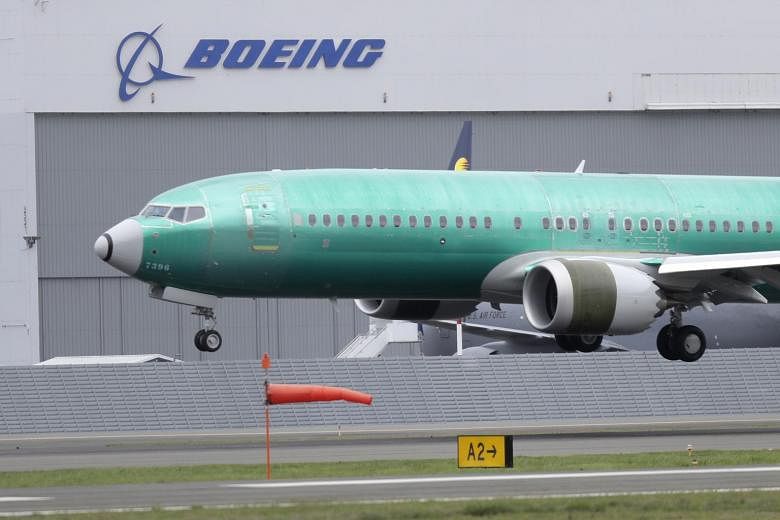WASHINGTON (WASHINGTON POST) - The Federal Aviation Administration proposed a rare US$3.9 million (S$5.3 million) civil penalty against Boeing on Friday (Dec 6), saying the company "knowingly submitted aircraft" to the agency for safety certification even after learning that crucial wing components "could not be used due to a failed strength test".
The FAA said in a statement and enforcement letter to Boeing on Friday that the company installed parts on some of its 737s that were "weakened" and "more prone to fatigue and failure". The so-called "slat tracks" are critical, serving to guide the slats that slide out from the front of wings and add stability and lift during take-off and landing.
The agency said the weakened components could allow the slats "to depart and potentially strike the aircraft, resulting in injury to aircraft occupants and/or preventing continued safe flight and landing".
The FAA said Boeing certified to the agency that at least 85 of its Next-Generation 737s were airworthy, despite having been informed by one of its suppliers that there were problems with the wing parts. The company made earlier safety pledges on dozens more of the aircraft, the FAA said.
Boeing "failed to adequately oversee its suppliers", then presented the resulting planes to the FAA as safe despite those known problems, according to the FAA. Boeing gave those safety assurances on paperwork required for planes to fly in the United States, on export certificates, and in one case a statement that the planes conformed with military requirements, according to the FAA.
In a statement, Boeing said the "nonconforming batch of slat track assemblies" were put on both Next-Generation 737s as well as 737 Max jets. The Max has been grounded since March, after a flawed flight control feature contributed to two crashes in five months, killing 346 people in Ethiopia and Indonesia.
"We are working closely with our customers to take the appropriate corrective actions," the company statement said. A Boeing spokesman said he could not immediately provide the number of Max jets affected, but the company said Boeing "will ensure that all inspections and any necessary part replacements are performed on all 737 MAXs before they return to service".
Boeing said it has "not been informed of any in-service issues related to the slat tracks themselves".
The FAA said Spirit AeroSystems supplied the slat tracks to Boeing. Spirit contracted with Kencoa Aerospace to provide the tracks. Kencoa, in turn, contracted with Southwest United Industries to perform a metal plating process that was associated with the weakening of the wing parts, according to the FAA.
Representatives for the three suppliers did not immediately respond to requests for comment on Friday.
In 2015, Boeing agreed to pay a US$12 million penalty as part of a settlement agreement with the FAA. The FAA said safety lapses with Boeing planes were repeatedly identified, and the company would agree to fix them but then fail to do so.
As part of that agreement, Boeing agreed to make significant changes in its internal safety systems and practices for "ensuring compliance" with regulations, and it remains subject to the terms of that agreement through Dec 31, 2020.
In the case of the slat tracks, the FAA on Friday gave Boeing 30 days to "submit the suggested amount in settlement" or provide additional information.
Asked if the company planned to pay, a Boeing spokesman, Chaz Bickers, said, "We'll review the penalty."

